
公众号“大鱼吞舟”的备份区
Hao Bocun dies | The last "KMT reactionary" dies
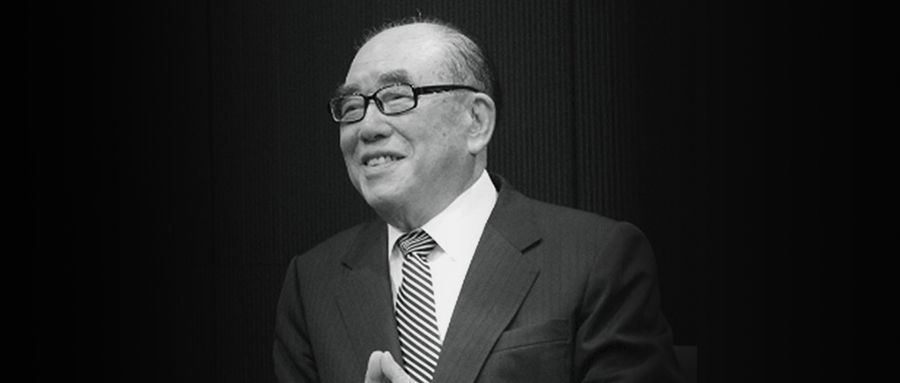
Hao Bocun has lived to be over a hundred years old, and his ups and downs in Taiwan's political arena can be regarded as a break. His death symbolizes that Taiwan has completely lost its memory of the Chiang Kai-shek era.
He once returned to his hometown in Jiangsu to visit the tombs, visited the old sites of the Anti-Japanese War many times, never accepted official receptions once, and was always brooding about the CCP's anti-Japanese propaganda;
In 2014, when visiting the Lugou Bridge Memorial Hall, he loudly asked the guides in the hall: "Where is the declaration of the national disaster?
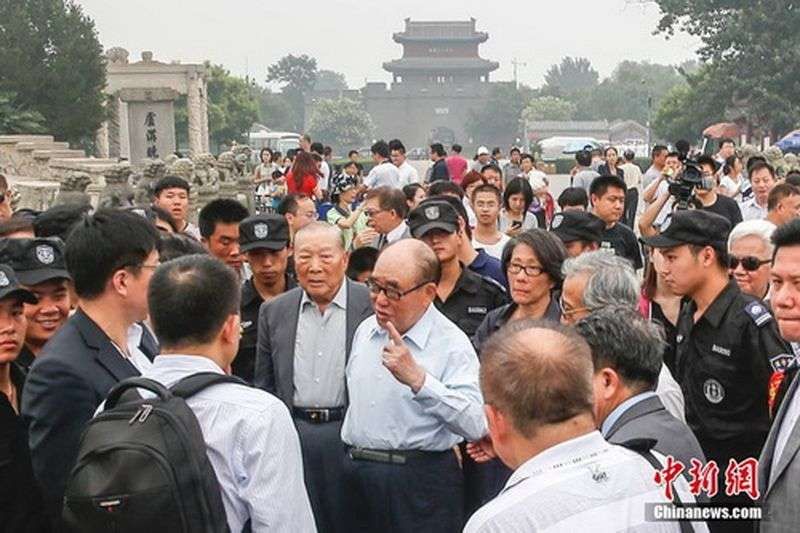
In an exclusive interview with the BBC in 2015, he emphasized that "in the propaganda of the Anti-Japanese War, the Chinese mainland officials compared the Kuomintang and the CCP, and called them the 'mainstay' of the Anti-Japanese War."
He also said, "I, Hao, have been a Chinese all my life. I go home to visit Sangzi's homeland. This is the most basic freedom and right of me, a Chinese."
He has experienced most of China's modern and modern history in his life, from the expeditionary army to the clinging to Jinmen, and then to the dispute between Hao and Li. His words and deeds just follow the trend of history, and he lacks responsibility for key historical choices. Returning to the hometown to worship ancestors, pay homage to Sun Yat-sen's mausoleum, and shout "Chinese people don't beat Chinese people" is only to seek positioning in the current historical time and space.
Being in a high position and working diligently, he cannot maintain the party’s rule internally, and he cannot contend for the sovereignty of the Diaoyu Islands externally; Let Li's quiet revolution against the Kuomintang, I'm sorry for the two Chiangs; condone the sergeant's cruel treatment of fishermen, I'm sorry for the Fujian boat.
Cross-strait mourning language differences
After Hao Bocun's death, it can be found from the mourning texts of various parties that there are considerable differences in the language presented in retrospect from different positions or starting points, which also reflects the complex aspect of modern Chinese history.
The National Army called Hao Bocun a "model of revolutionary soldiers" and pointed out that in 1935, Hao Bocun "witnessed that the country was being oppressed by the Japanese, and embraced the young people's heart to resist Japan and save the country, and resolutely joined the army, and was admitted to the 12th issue of the Army Officers Academy. In this life's vocation, the military is home.
He has counted the battles that Hao Bocun has participated in, including the Guangzhou Battle in 1938, the expedition to Burma, and the commander of the Ninth Division of the Kinmen Lieyu Infantry during the August 23rd Artillery War. He called it "witnessed many critical moments in the country's century-long development, and is full of mission, urgency and responsibility for the country he loves."
Xiaoying posted on Facebook, saying, "Thanks to the former president of Hao Bocun for his lifelong dedication to the country, especially his contribution to defending the country during the August 23rd Artillery War, which is worthy of gratitude for future generations";
Wang Yanjun, director of Lee Teng-hui's office, said: "Hao Bocun is also considered a generation of famous generals, and we can only say that we have good luck and longevity."
The Kuomintang said in a press release that Hao Bocun has been a soldier throughout his life, loyal to the country, has a resolute and unyielding personality, and is impartial in national identity.
At the same time, Ma Ying-jeou also issued a press release, saying that Hao Bocun had been in the army all his life, experienced the anti-Japanese, the suppression of the Communist Party, the August 23 artillery battle, followed the former president Jiang Gong to recover, defend and build Taiwan, "let the Republic of China stand firm in the turbulent years. Footsteps are witnesses to the confrontation between the two sides of the Taiwan Strait." He praised Hao Bocun for his political contributions to the modernization of the national army and the construction of the Jingguo fighter jet when he served as chief of staff, first-level general and defense minister.
On the mainland, a spokesperson for the Taiwan Affairs Office of the State Council pointed out that Mr. Hao Bocun "has profound national feelings, firmly opposes 'Taiwan independence', is committed to national reunification, has contributed a lot to promoting the development of cross-strait relations, and has won widespread praise and respect from compatriots on both sides of the strait."
Judging from the mourning sent to Hao Bocun from all walks of life, each of them actually captured a certain segment of Hao Bocun's life.
For example, the DPP emphasized Hao Bocun's contribution to protecting Taiwan in the August 23rd Artillery War, while the CCP emphasized that he opposed Taiwan independence and supported China's reunification. As for the Kuomintang, it is described as Hao Bocun's "personal participation in the defense and construction of Taiwan, and outstanding contributions to the country and the nation", highlighting the ambiguous national identity, and the attitude is worth pondering.
In fact, neither the DPP nor the CCP mentioned Hao Bocun before 1949, and rarely talked about the war of resistance and the civil war between the Kuomintang and the Communist Party. Instead, the Kuomintang and Ma Ying-jeou and others talked about Hao Bocun before 1949 in more detail, including his participation in the military, The original intention and experience of participating in the War of Resistance and the Expeditionary Force.
No one from all walks of life will deny that he is a staunch "Chinese nationalist". The shape of this position is largely due to the emotions accumulated by the internal and external situation in China during the Anti-Japanese War. This is similar to his age, but different. Compared with peers who have experienced such as Lee Teng-hui, there is a big difference.
Lee Teng-hui killed three soldiers with one peach
Hao Bocun also held a high position in the political arena, and the failure of the Hao-Li dispute made him fade out from the political arena. In fact, in his early years, he was not old Jiang's favorite general. Although he graduated from Whampoa, he was not from the Whampoa department. When he was a servant by Jiang's side, he just obeyed orders, far less than the later Xiao Jiang valued him.
But at the beginning, he was not on Chiang Ching-kuo's successor list. However, the sky does not follow people's wishes, and Yu Haozhang suffered a helicopter crash; one after another, Wang Sheng was demoted by Jingguo due to his high merits.
After Jianfeng lost his two favorite generals, he was able to directly take the core of military power from the army system.
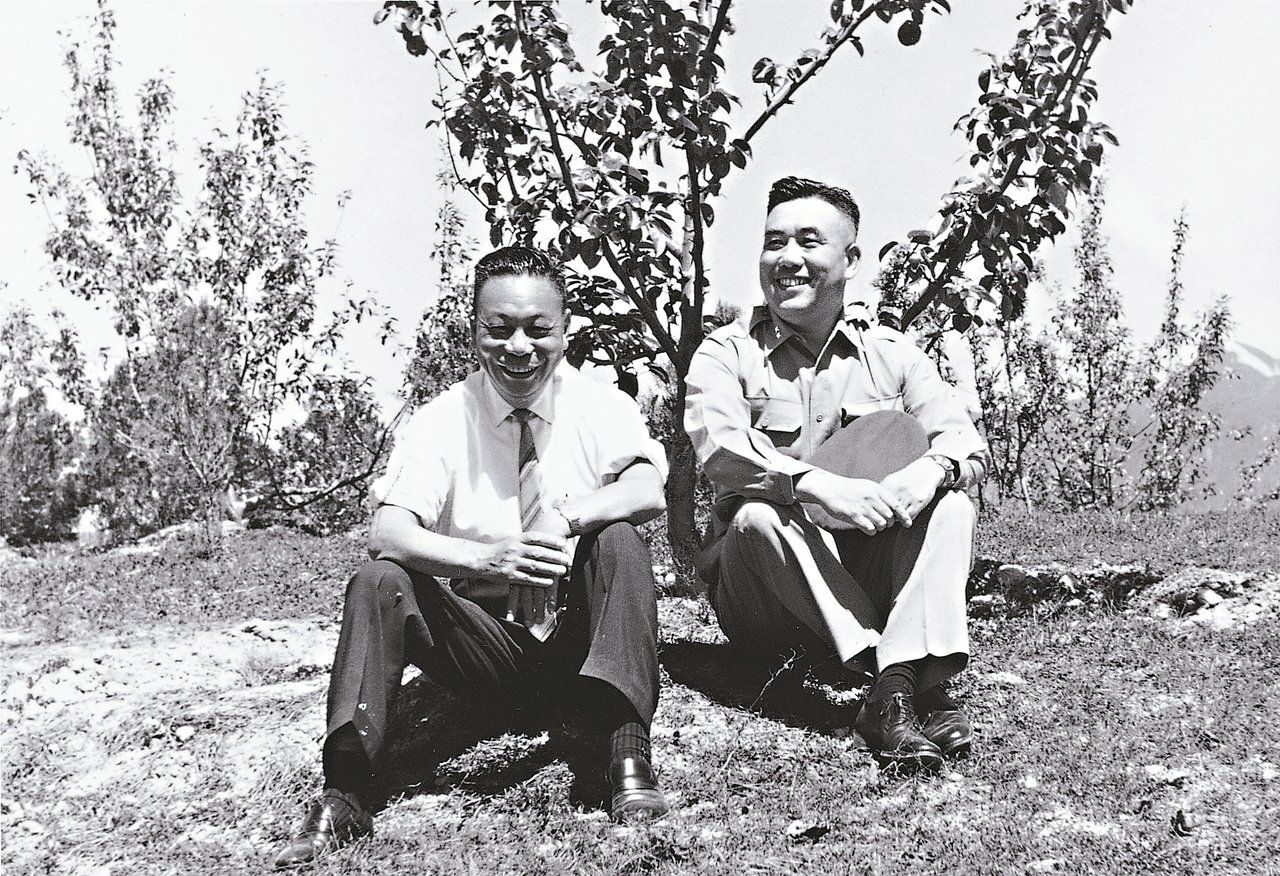
On January 13, 1988, Chiang Ching-kuo died of illness, and that night, Lee Teng-hui was sworn in as his successor.
According to the arrangement of Jingguo, a "succession iron triangle" was left to check and balance Li. This is the "Executive President" Yu Guohua, the Secretary-General of the Central Party Department Li Huan, and the "Chief of Staff" Hao Bocun Bocun.
In order to weaken the Kuomintang and consolidate his personal status, Lee Teng-hui decided to first take action on the "Iron Triangle of Succession".
Lee Teng-hui wants to be the party chairman, while Soong Mei-ling wants someone else to be the party chairman. At the regular meeting of the Kuomintang, Li Huan and others who were very disgusted with Song Meiling supported Lee Teng-hui as the party chairman, but the Jiang family firmly opposed it.
When the stalemate persisted, James Soong, who was promoted by Chiang Ching-kuo and then deputy secretary-general of the Central Party Department, suddenly came out and supported Lee Teng-hui as the chairman of the Kuomintang.
The defections of Li Huan and James Soong have created a gap in the "net against Li" carefully constructed by Chiang Ching-kuo.
Soon, using the power of the party chairman, Li began to purge the "Jiang family forces" within the party, and used the "local faction" in large numbers.
After that, Lee Teng-hui pointed the finger at Yu Guohua in the "Iron Triangle of Succession", forcing Yu Guohua to resign. Immediately appointed Li Huan, who had previously taken refuge in himself, as "Executive President". The post of Secretary General of the Central Party Department left by Li Huan was taken over by Song.
Li's next target is naturally Hao Bo Village, Bo Village, who holds military power. Hao Bocun Bocun has served as the "Chief of the General Staff" since 1981, holding the highest military power on the island, claiming that even if the national army has undergone ten-year personnel changes, it is all his people.
On November 22, 1989, Hao Bocun went to visit Southeast Asia, and Li suddenly signed an order that Hao Bocun would be raised secretly, and the "Chief of the General Staff" would be promoted to the "Minister of Defense".
The Jiang family was very frightened by what Li series did. In February 1990, they publicly confronted Lee Teng-hui over the issue of candidate selection within the party, provoking the famous "February Political Dispute".
After being re-elected, Lee Teng-hui believed that although Lee Hwan turned to himself, he was not a cronie after all. Although the Jiang family hated Li Huan's betrayal, they still fully supported Li Huan in order to prevent Li Tenghui from further seizing power.
Seeing this, the wily Lee Teng-hui unexpectedly appointed Hao Bocun as the "Executive President". This move is extremely insidious - even if Li Huan stepped down, it also sealed the mouth of the "Jiang family forces".
Li Huan knew that his prestige was far inferior to that of Hao Bocun, and he retired on his own at the moment; while Hao Bocun appeared to be a general, and it was not very beautiful.
After Hao Bocun took office, Li tried every means to get him to step down, and even asked the DPP to stand up and accuse Hao Bocun of "military interfering in politics". Hao Bocun was helpless and resigned in January 1993.
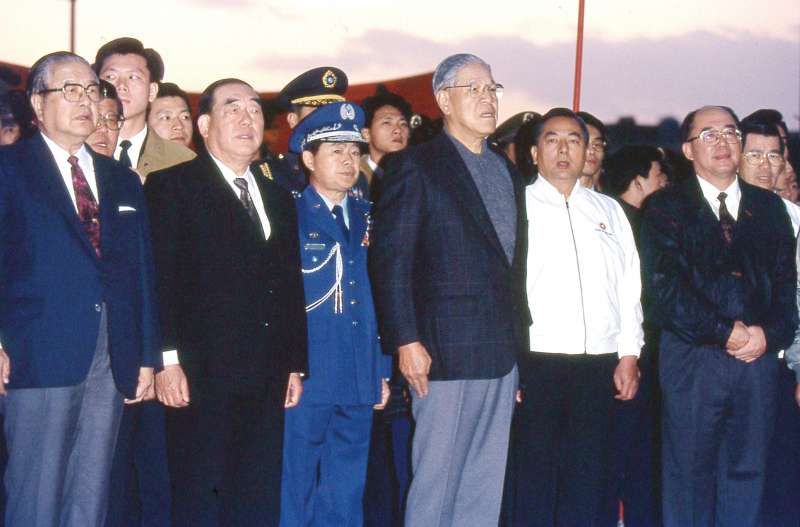
In the face of Li's quiet revolution, as a servant of Tuogu left by Jianfeng, facing Li, Nuo Ran was speechless. Lee Teng-hui's methods of suppressing dissidents and his idea of Taiwan independence made a considerable number of party members disappointed with the Kuomintang. The anti-Li forces established a number of subgroups within the Kuomintang, and eventually separated from the Kuomintang, such as the New Party, and the Kuomintang gradually split.
The departure of Governor Song directly caused the Kuomintang to lose power in the 2000 general election. And Lee Teng-hui's long-cherished wish for many years - to be governed by the DPP has finally come true. But he still felt that it was not enough. In 2001, Lee Teng-hui, who was still a member of the Kuomintang, pulled out another team from the Kuomintang and established the "Taiwan Union Party". For this reason, he was expelled from the Kuomintang.
But at that time, the Kuomintang had already been greatly damaged by Lee Teng-hui.
Li Tenghui used the position of the chief executive to kill Xiao Jiang's successor, the Iron Triangle, the chief executive Yu Guohua, the party secretary Li Huan, and the chief of staff Hao Bocun. Others kill three scholars with two peach, but he kills three scholars with one peach.
In five years, a weak vice president took back party power, military power, and executive power. Afterwards, in one cold province, he easily killed his hard-core ally and successor, Governor Song.
A veteran of the Anti-Japanese War who was diligent in writing in his later years.
After losing power, Hao Bocun devoted himself to writing in his later years, focusing on the interpretation and analysis of China's military and political history during the Anti-Japanese War.
He said in the preface to the book "Hao Bocun Interpretation of Jiang Gong's Eight-Year Anti-Japanese War Diary":
He was born in 1919, 79 years after the Opium War, 59 years after the British-French Allied Forces entered Beijing, 24 years from the Sino-Japanese War, and 19 years from the Eight-Power Allied Forces. "If you ask me what I know about the above four wars How much, my answer is very little”; “Now my compatriots under the age of 80, if you ask them how much they know about the war, the answer is the same as what I know about the Opium War.”
Therefore, in his twilight years, he spared no effort to interpret "The Diary of Chiang Kai-shek" as a Whampoa military cadet.
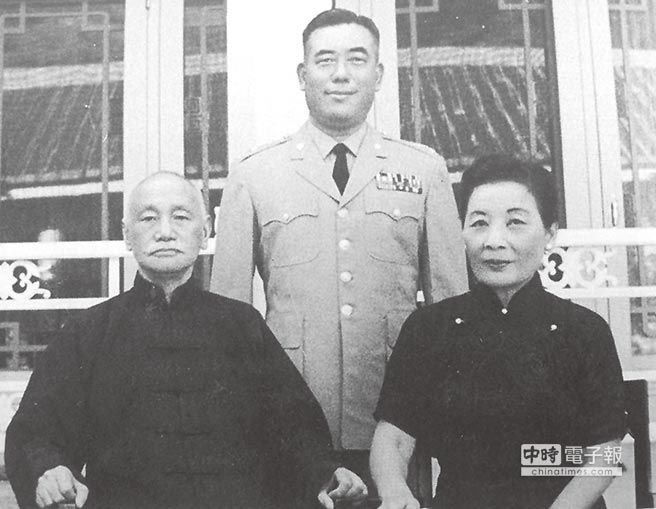
He believes that both sides of the strait have distorted or ignored the history of the Anti-Japanese War, and because of the deep fear that future generations will misunderstand the history of the Anti-Japanese War, Fang is committed to leaving the most detailed records as witnesses.
Hao Bocun has always insisted that the victory of the Anti-Japanese War is the cornerstone for the Chinese nation to gain a foothold in today's world. Without the victory of the Anti-Japanese War, the unequal treaties would not have been abolished, and the only chief engineer who built the Great Wall of China was always honored by him as "" Chairman" of Chiang Kai-shek.
With the passing of Hao Bocun, several impressions of him are often well known, whether it is "Uncle Hao", "soldier's cabinet", "military leader in politics", or "commander of Lieyu Island on August 23". Maybe it doesn't matter anymore.
As Hao Bocun's life came to an end, the differences in the positions of all walks of life on both sides of the Taiwan Strait towards modern and modern history became apparent. This memory of the Chinese nation of yesterday may be drifting away in Taiwan.
First published on the public account: Big Fish Swallows the Boat
Like my work?
Don't forget to support or like, so I know you are with me..
Comment…